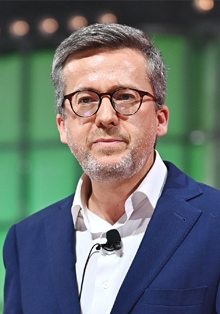Miguel Peco Yeste
PhD in International Security
Just a few days ago there was a debate about European security and the role Russia should play in it. There was talk of the supposed assurances given to then President Gorbachev that NATO would not expand into the countries of the former Soviet orbit, of the threat posed by the growing presence of NATO troops in Eastern Europe, of the missile defence shield that could upset the strategic balance, of the failure of disarmament and arms control measures, and so on and so forth.
In reality, the arguments were not very strong, since countries are sovereign in deciding their security policies, NATO began its deployment on its eastern flank after the illegal occupation of Crimea in 2014, and there would be much to say about the rest. It was not a very visible debate, and to some extent limited to specialised circles. But it was there. There was even some understanding of the Russian government’s position. After all, Russia had been attacked and even invaded several times over the past centuries.
In these circumstances, it turns out that only a few days ago a televised message appears in which President Putin announces a military operation to demilitarise and “denazify” Ukraine. Two army corps cross the country’s eastern border and deploy in areas controlled by pro-Russian rebels. A naval landing takes place in the south of the country and another front opens up in Crimea. From the north, columns of armoured vehicles cross the border into Belarus and are planted at the gates of the capital, Kiev. And as if that were not enough, the Russian government is threatening “never before seen in history” reprisals – nuclear, in short – against anyone who tries to get in the way. The pace of events is devilish, and by the time this article is published anything could have happened. But regardless of the outcome, one thing seems clear. This is not what it used to be and something has changed forever.
Indeed; last week’s debate no longer makes sense. Putin has taken an action that is unacceptable and reprehensible from any legal, ethical, moral and human point of view. He has lied miserably to the entire international community when he repeatedly stated that he was not going to invade Ukraine. He has scorned and ridiculed the good intentions of European leaders who have sought solutions to their security grievances. And he has made it clear that what appeared to be a security problem is in fact pure, simple and unadulterated imperialist ambition.
Wars are about politics, and are therefore won at the political level. Military victories are worthless if they do not serve a political purpose. Putin and his clique will probably succeed in annexing the rebel regions of Ukraine and perhaps more. In return, Russia has become the West’s great enemy, the key to strengthening alliances, unifying Europe, strengthening the transatlantic link and probably enlarging NATO with what is left of Ukraine, Sweden and Finland. No one in recent decades has achieved anything like this. What’s more, every speech, every message issued by Russian government spokespersons smacks of sarcasm if not ridicule. One might even wonder whether Chinese leaders will continue to accept the long-awaited rapprochement – to put it mildly – that has been observed over the past few years on the part of the Russian government. This is not just a strategic mistake; it is a real blunder.
Putin may win the battle in Ukraine, but he has lost the war – his war – in the eyes of the international community. Security is a legitimate ambition; sick imperialism is not. Russia has gone from being part of Europe’s security to being a real threat to Europe. Do the Russian people really deserve such rulers?
© Articulo 30 / All rights reserved






